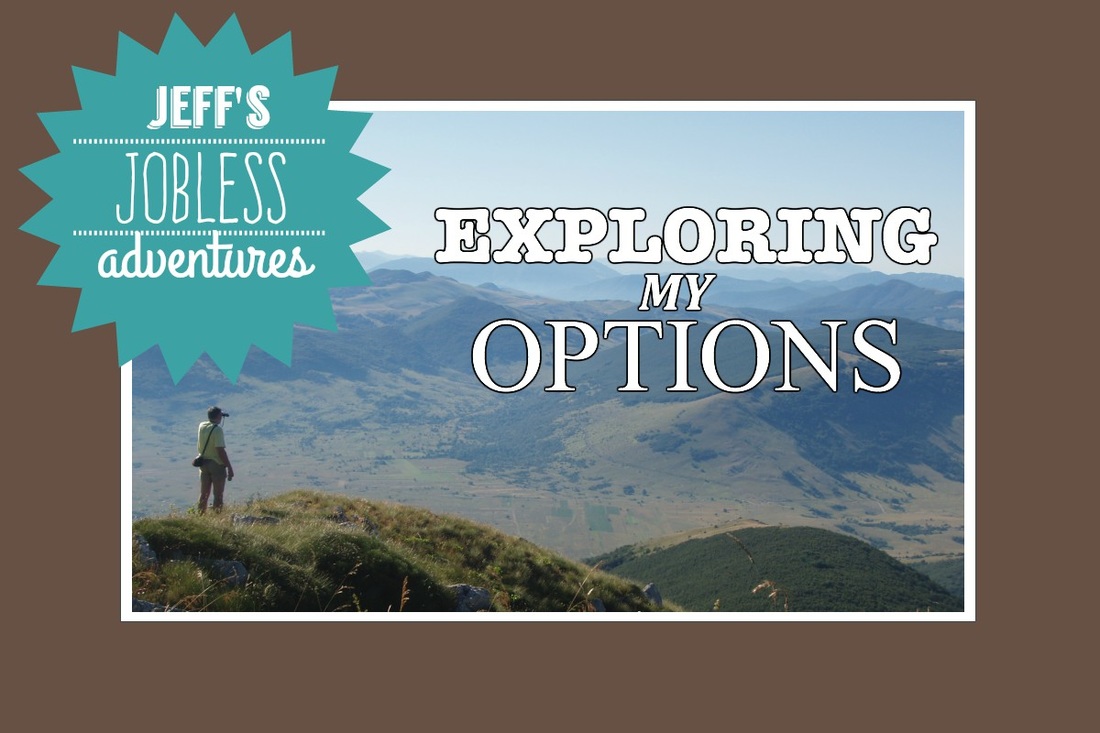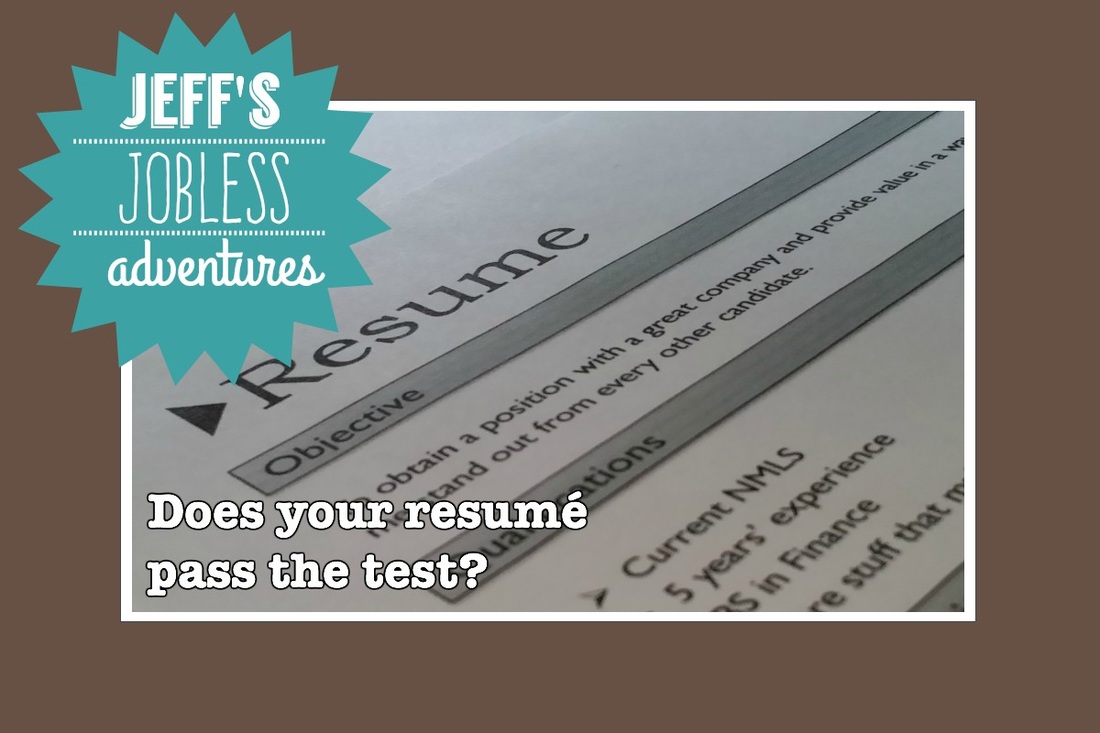My random thoughts.
|
It has been a long time since I have updated anything on the job front lately in this blog and there is a good reason for that: it's summer! Since the start of July I have been busy — thankfully — working on a few freelancing projects for a number of clients who have either found me with this website or by meeting me face-to-face through a handful of networking opportunities. I have also continued my hunt on finding full time work, and so far the extreme-challenge continues. Luckily, July has also given me some time to relax and reflect so I can figure out my options for my career. I've had a few job interviews, but no job offers. But luckily the freelancing opportunities are continuing to come my way which is really exciting. It's exciting because I think I can make a go at this without ever finding full-time work, but it's still too early to jump to that conclusion. The fact that I am having an easier time finding freelancing opportunities has made me realize I am now part of the so-called gig-economy. Watch the video below to learn a little more about it: Working on these freelancing opportunities has suddenly renewed my passion to be an awesome storyteller and a multimedia journalist again — something I haven't felt since leaving the Edmonton Sun in 2013.
This seems hilarious to me because when someone would tell me they were a "freelance journalist" I used think that was a better way to say "unemployed." Not anymore. It is so easy to freelance now, especially in an economy full of new start-up companies, new technology, and a sudden shift in how quality journalism gets funded. Investigative journalists are looking to Kickstarter to fund their work and community leaders who are dismayed by seeing the quality of local journalism decline because of shrinking newsrooms are taking matters into their own hands by creating independent, community-driven news sources. A good example of this is Taproot Edmonton. I look forward to working with Taproot Edmonton and hopefully I can make a go at this freelancing thing. It's going to be an amazing summer if I can.
0 Comments
Resumés or CVs can be the most difficult pitch to influence someone from hiring you. All it takes is 30 seconds for the potential employer to read through a resume and cover letter before deciding whether or not to bring you in for an interview or to throw your application into the trash. And no, most companies or organizations don’t “file” your application if you are not successful. It usually gets thrown into “File 13,” especially if you have never received a call for an interview. With that said, I’ve had a few people ask me about resume writing and what it takes to make a good resume or cover letter. Fortunately, during my search, I have landed one job interview every week since I lost my job. I know for a fact my issue isn’t my resumé or cover letter. As mentioned before, it has everything to do with my lack of confidence in a job interview and my inability to tell a potential employer about how my skills can help an organization. Enough about me though. I have jotted down five things to help you in your job search after some valuable lessons I’ve learned after attending a number of hiring workshops: 1. Take inventory of your skills and characteristics.Before even beginning to write a resumé, you need to take an inventory of your skills and abilities, as in what are you really good at? Also, you need to jot down your characteristics which will tell an employer how you are able to approach certain situations. For me, based on my skills, I am a creative, social media-savvy storyteller who is able to multitask. In terms of my characteristics, I value integrity, hard-work, along with being flexible and adaptable — an important trait when it comes to the media biz. Once you’ve determined your list, those skills, values, characteristics and abilities should be the theme for your cover letter and resume. 2. No resume or cover letter should ever be the same.Alberta’s economy is struggling and odds are when you are applying for a job, there are 100 or so people who have also applied to the same position. That’s a good reason why you need to tailor your resumé and cover letter to the organization you are applying to rather than sending one static application to multiple organizations during your job search. An employer needs to know how your specific assets — skills, characteristics, and values — can benefit an organization along with being the right fit for its corporate work culture. Having a static application that you have sent over and over again to multiple organizations won’t necessarily answer those questions for a potential employer. 3. Do your values align with a potential employer's mission and vision statement?A mission and vision statement says a lot about an organization or a company. During my last job at a non-profit, its mission and vision statement changed while I was employed there. It’s mission is now to only “raise money” for research, prevention and support for patients as donations were slowly trickling in. Once the mission and vision statements changed, the writing was on the wall for me to lose my job. Based on my assets — my skills and characteristics — I am a storyteller and a communicator, not a fundraiser. I lost my job a year after that decision was made by its board and I understand the decision. No hard feelings. This is also something to pay extra attention to when sending your application off to an organization. Do your skills, characteristics, and values align with an organization’s mission and vision statement? If they do, those assets need to pop out in your application. 4. Does your resumé clear the robots? If you are applying to a large firm, odds are the 30 seconds it takes to read through your application isn’t being read from an actual human at all. Many large firms or companies use an HR computer program that parses through your application to identify key words or phrases within the text of your resume. That same computer program then breaks down the text of your application into four categories usually: education, contact info, skills, and work experience. The graphic below, from Resunate.com, breaks down the process even further. Double-click or right click the graphic below to expand it.: With that said, it is absolutely vital to include key terms and phrases to your application so a human can actually read your application. Use key nouns in your application — like the names of the equipment that you are skilled in using, or the computer programs you know extremely well. Also pay attention to the job positing and find what words are being used the most to describe the position. You may need to include those over-used words in your cover letter and resumé. 5. Does your application pass the test?The Alberta Learning Information Service has an awesome online checklist that you can use to review your application before sending it off to a potential employer.
The first checklist determines whether or not your resumé is complete and the second checklist helps you determine if your resume is up to professional standards. It’s a handy tool worth checking out here. Here’s a gut-wrenching scenario during a job interview (at least it is for me): it’s when an employer asks “what are your salary expectations?” Your answer could sink you. As Alberta goes through one of its worst recession in decades, that question is more than difficult to answer. Should you cite how much you made at your previous job? Should you undersell yourself given Alberta’s current economic situation? Should you give the potential employer a wide, vague range of your salary expectations. For me, all of those questions run through my mind as I am in the middle of a job interview. When I get asked that, I freeze. I don’t know what to tell the potential employer, especially if the job ad didn’t specify a salary. I have so far answered that question by telling the potential employer how much I earned during my last position. Given my lack of success in nailing a job offer, I have recently given a range after getting some advice from BGS Career and Corporate Services. As BGS points out, knowing what your salary expectations are and what you’re actually worth is all part of the prep work before going to a job interview. I don’t think there is a wrong or right answer when it comes to salary expectations. It all depends on the employer and how competitive you are willing to be among hundreds of applicants who applied to the same position. Welcome to Alberta in 2016! However, it’s not all doom and gloom. A good place to start — if you live in Alberta — is to check out alis.alberta.ca. The government website is a great place to find out what the average salary is for any type of position. Knowing the average salary for a public relations professional, I gave a potential employer during a pre-screening phone call a range around the average listed in the government site. The employer also asked a few follow-up questions in relation to the salary and that is when I pointed cited the info from the government website. It must have worked as I now have a second job interview. Archives
February 2017
|
Jeff Cummings
|
© COPYRIGHT 2015. ALL RIGHTS RESERVED.
|




 RSS Feed
RSS Feed